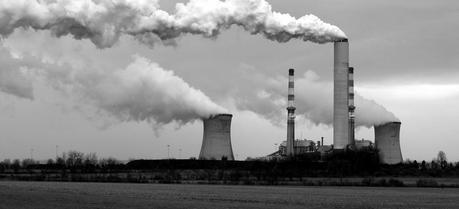 PPL Montour Power Plant in Washingtonville, PA. (Credit: Flickr @ Dennis https://www.flickr.com/photos/road_less_trvled/)
PPL Montour Power Plant in Washingtonville, PA. (Credit: Flickr @ Dennis https://www.flickr.com/photos/road_less_trvled/)A new paper led by the Smith School for Enterprise and the Environment at the University of Oxford examines the environmental, economic and political implications of unconventional fuel sources like shale gas and tight oil.
It suggests that these novel resources could be a “blessing for the global economy,” but also that the implications go far beyond the economic dimension—redrawing the global map in terms of trade balances, economic competitiveness and, most importantly, the geopolitical balance.
SEE ALSO: Oil Price Volatility Hinders Economic Growth
In the journal Applied Petrochemical Research (see footnote), the authors suggest that rapid technological advances are unlocking previously uneconomic resources transforming the global energy landscape. Novel resources make the US more independent of fuel imports and the EU is likely to follow, says the paper. Taking the US as an example, the paper analyzes data from the International Energy Agency (IEA) showing imports of natural gas have dropped to below three trillion cubic feet (tcf) while domestic production of natural gas has risen to more eight tcf per annum. While more than half of the US natural gas production comes from unconventional sources today, by 2040 the percentage could rise to more than 75%, according to the Oxford study.
Different property rights in European countries could make it more difficult to extract shale gas. However, the IEA estimates that the EU has more than 600 tcf of unconventional gas reserves, says the paper. While the “environmentally conscious” European public have regarded such resources with some skepticism, the current situation in Ukraine and the rising tension between the East and West could “raw public attention away from environmental issues towards energy security concerns,” says the paper. At the moment, Europe is heavily dependent on gas from Russia, but the paper adds: “Through ample gas production in the US and the potential of EU shale gas production, the West could strike back by intensifying transatlantic bonds and gaining independence of imports from the East.”
“It is tough to forecast how this situation will develop as political, economic and technological issues interact,” remarks author Oliver Inderwildi of the Smith School. He highlights how the United States is policing the seven global oil chokepoints, providing stability to the Middle East through diplomatic channels and military presence. According to Inderwildi, the critical question will be: “Will this continue when the US only has to import relatively minor amounts of petroleum which are likely to come from Canada, Mexico and Venezuela?”
The paper notes that resources play a critical role in the power struggle between the West and Russia. New resources creating geopolitical shifts stem from advances in processes for extracting gas and oil, for example, through horizontal drilling, fractured cracking of shale rock and advanced chemicals that allow cracking of shale under “relatively benign conditions.”
The authors argue there are “valid concerns” about the environmental effect of the “more emission intensive” process, but such problems are “not insurmountable.” If coal were crowded out by shale gas and oil, this could lead to an overall reduction of greenhouse gases. The paper cites IEA data showing there has been a sustained decline in US greenhouse gases since 2010 while the US economy has grown year by year—due in part to coal being crowded out by cheap shale gas. The authors conclude that “smart policies” are needed to ensure these resources are not only a winner for politics and economies but also for the environment.
The research paper was led by Dr Oliver Inderwildi from the University of Oxford in collaboration with Fabian Siegrist and Robert Dickson from Deloitte LLP in New York and Andrew Hagan from the World Economic Forum.
The paper was part of a special issue of the journal Applied Petrochemical Research, arising from the 2013 King Abdulaziz City of Science and Technology-Oxford Petrochemical Forum held in Oxford last summer.
Inderwildi, O., Siegrist, F., Dickson, R., & Hagan, A. (2014). The feedstock curve: novel fuel resources, environmental conservation, the force of economics and the renewed east–west power struggle Applied Petrochemical Research, 4 (1), 157-165 DOI: 10.1007/s13203-014-0062-1
